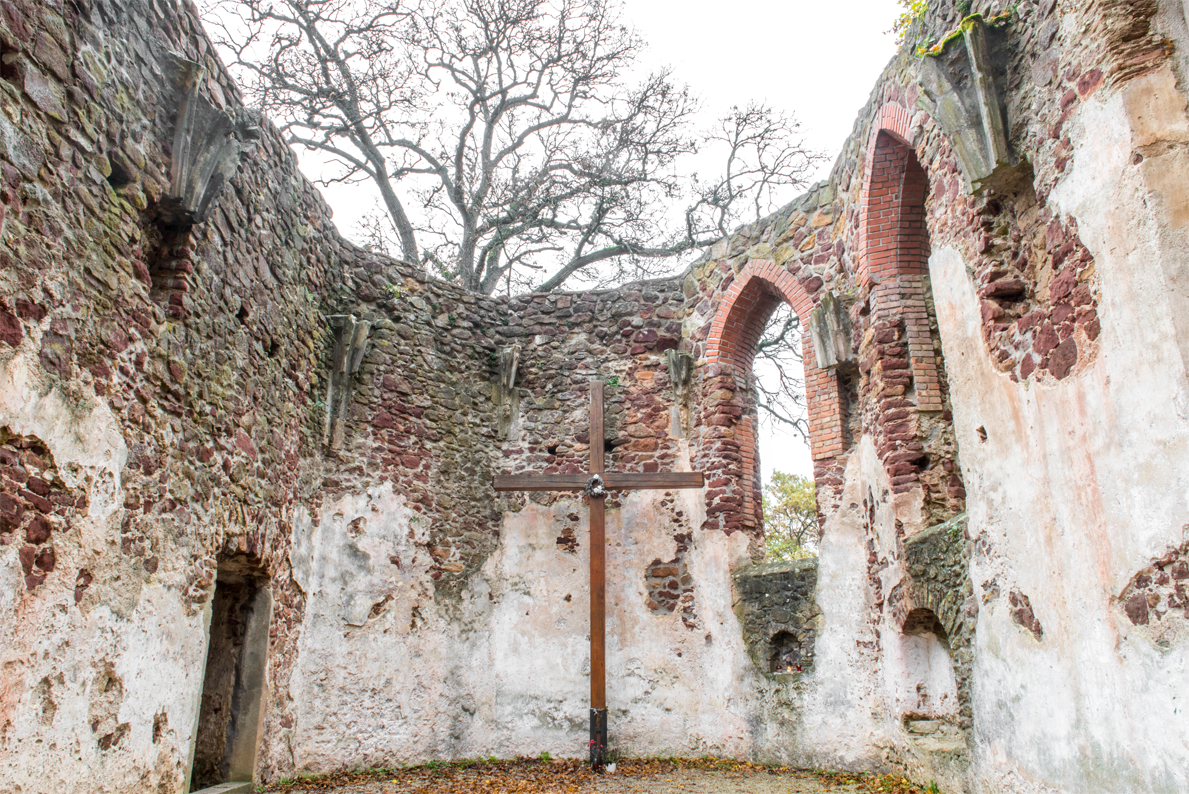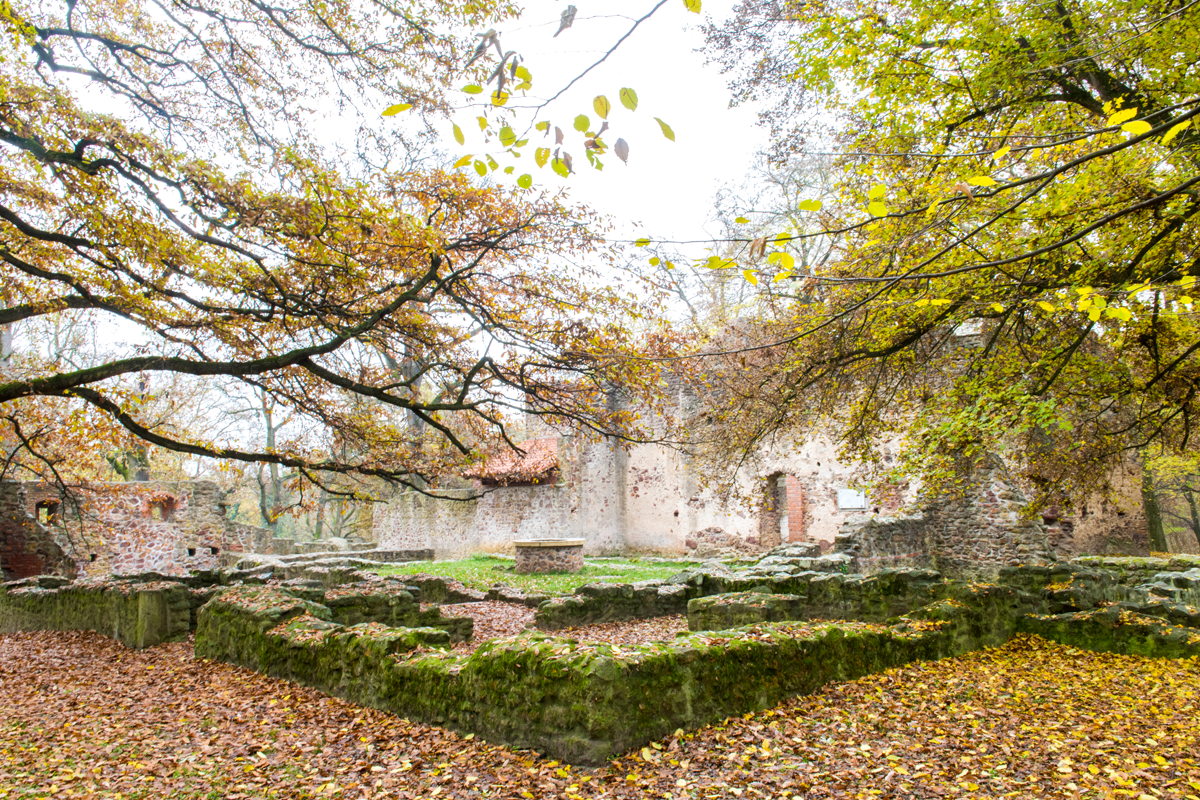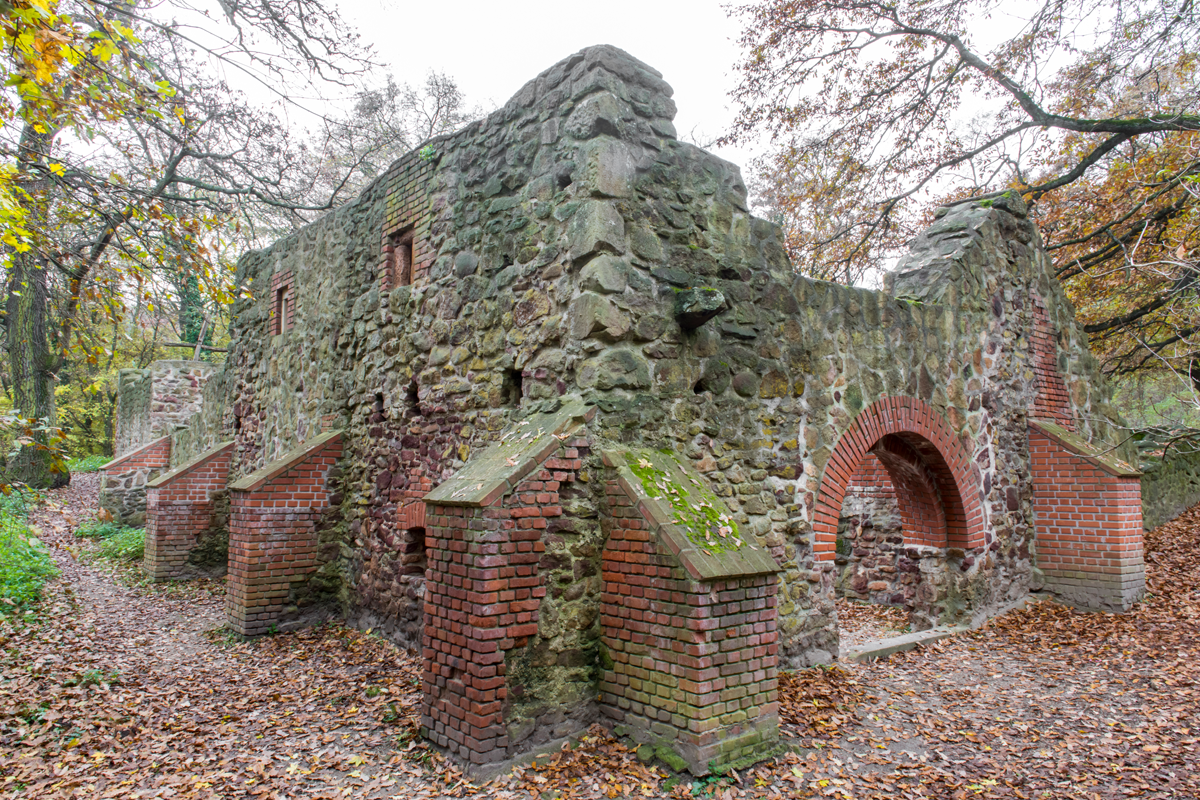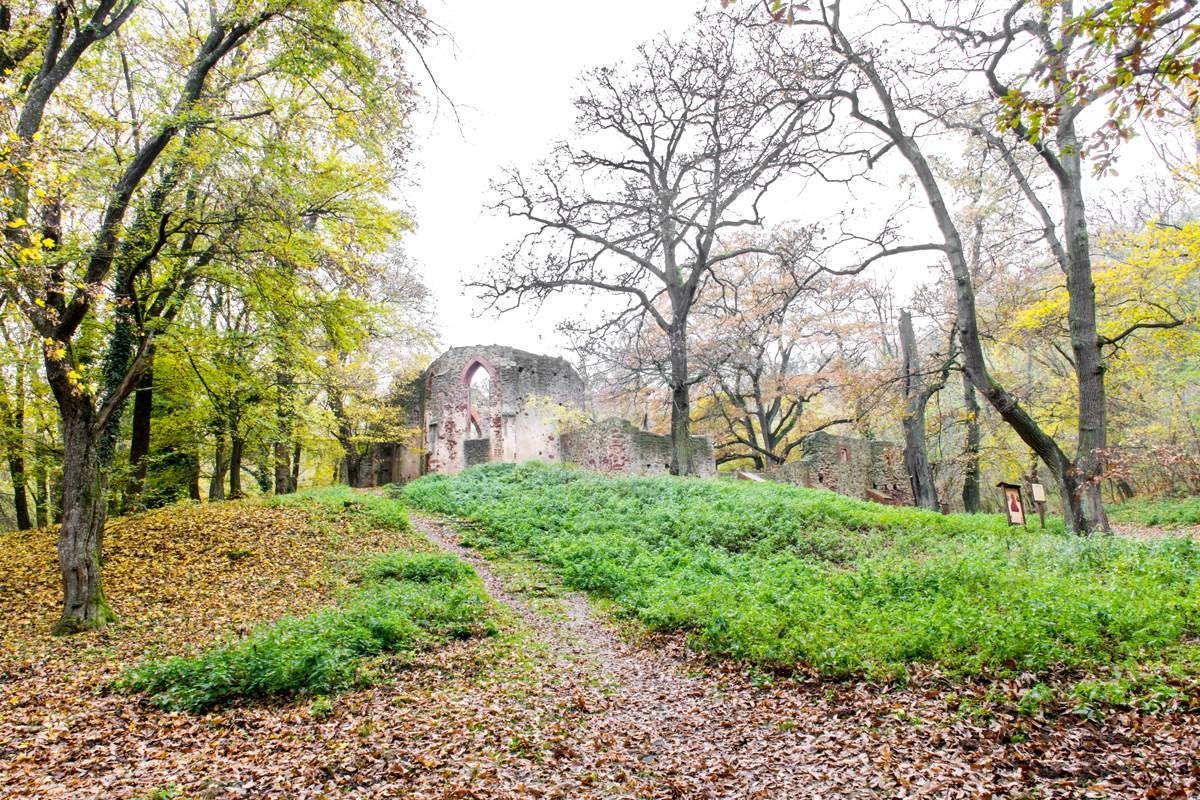The ruins of the Salföld Pauline monastery as a soundscape
Sound ecology has been dealing with the preservation of the beauties of sonic environments, the research and presentation of their cultural and natural values since the 1970s. This website was created within the framework of a program launched at Moholy-Nagy University of Arts and Design Budapest in cooperation with iASK (Institute for Advanced Studies Kőszeg). The subject of the program is the acoustic ecology of Transdanubia - Western Hungary, and the elements of the creative provincial music development program “Sounding City” started by the music workshop of iASK.
In its current state, the Pauline monastery in Salföld is a well-kept ruin, half an hour's walk from the village, in the thick forest. The place can associate two sound worlds: the sacred music of the historic church practice, and the sounds of nature.
The Pauline order (Order of Saint Paul the First Hermit) was founded by Hungarian monks in the 14th century. This is the only monastic order founded in Hungary. The basis of the ceremonies, as in the Middle Ages in general, was the sung repertoire. These Gregorian chants form the musical heritage of the monastery, and a selection of them is performed.
The forests around the monastery are among the protected areas of the Balaton Uplands National Park. Visitors to the site have little chance to hear all native animal species in their full richness, especially by the rhythm of nature: others are the sounds of morning, daytime, night, the sounds of spring, summer, autumn, winter. The website reflects this diversity.
Sonic ecology has always been inseparable from artistic relationship to sounds. Founders of the discipline, Murray Schafer, Hildegard Westerkamp, Barry Truax are composers, as well as many members of the next generations. On the website, we also accommodate pieces that reflect the place in the language of new music and sound art.
An important part of our goals is to preserve and promote natural and cultural values. In this, we also want to connect with local communities and present life. Sounds can play an important role in strengthening local identity. It will be a pleasure for us if our initiative can contribute to the ‘sound based self-consciousness’ of Balaton Uplands through cultural, educational and touristic channels.
Csaba Hajnóczy, Zoltán Mizsei
January, 2021.







